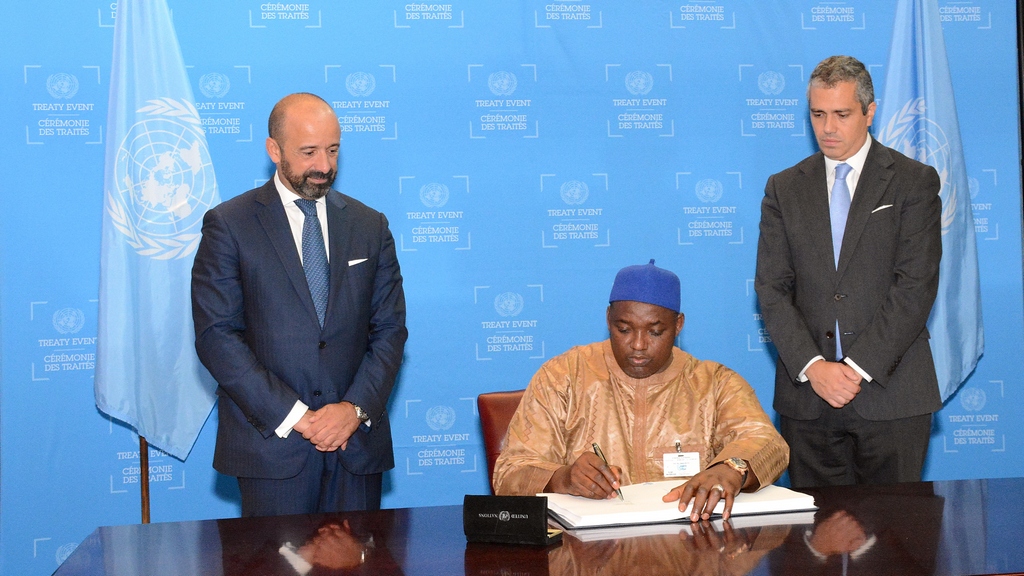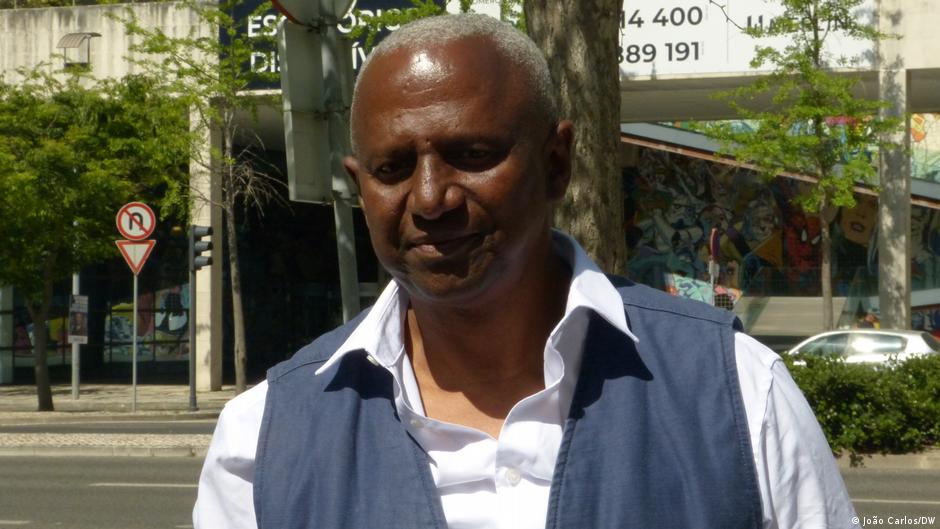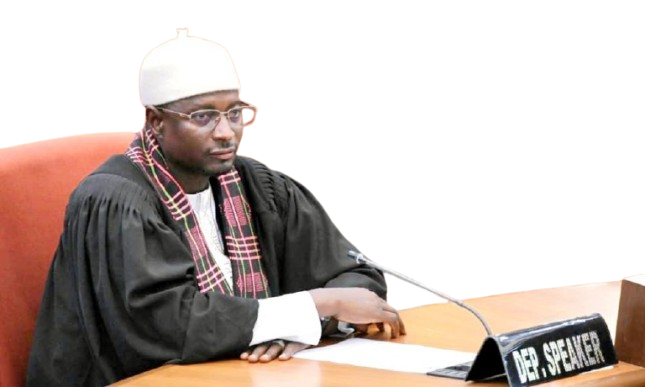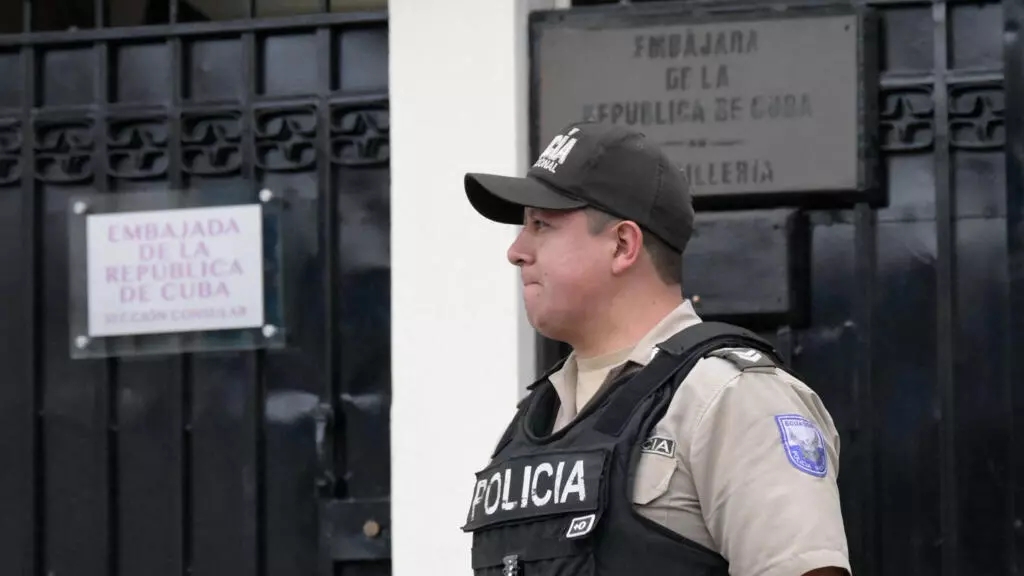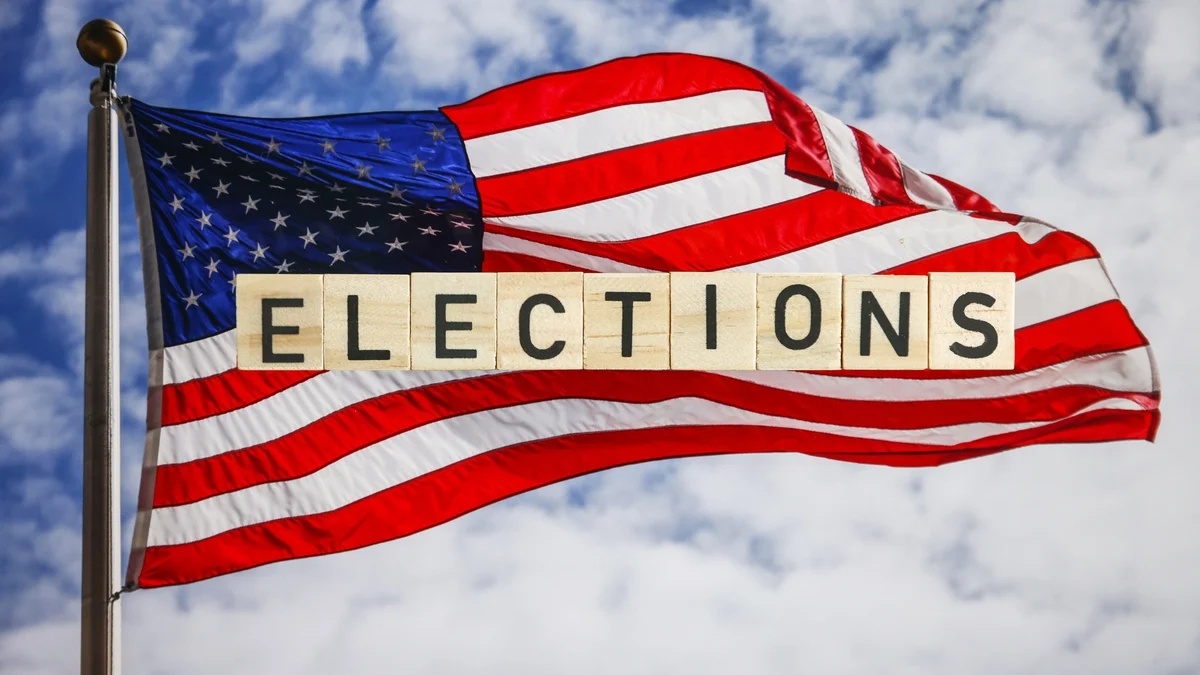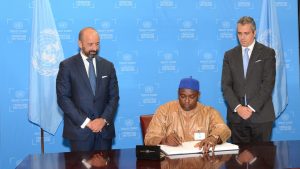Gambiaj.com – (WASHINGTON, United States) – As election season heads toward its final stretch, political observers and voters alike are digesting every poll, simulation, and analysis on battleground states, searching for signs of how the 2024 presidential race may conclude. Yet, history suggests that the most decisive factor may not have emerged yet. This phenomenon, popularly known as the “October Surprise,” has played a defining role in multiple close presidential contests over the past four decades, throwing a wrench into months of campaign planning and analysis.
The concept of an “October Surprise” entered the American political lexicon in 1980 when Ronald Reagan’s campaign voiced concerns that then-President Jimmy Carter might secure the release of 52 American hostages held in Iran, potentially boosting his re-election chances.
Despite campaign manager Bill Casey’s public warnings of a last-minute diplomatic success by Carter, the hostages remained captive, underscoring the gravity of their plight on election eve. In a twist, the hostages were released mere minutes after Reagan took office, fueling suspicions of back channel communications to delay their freedom until after the election.
Although a 1993 House investigation found little direct evidence of collusion between Reagan’s campaign and Iran, later research has presented circumstantial support for this theory.
Other late-breaking developments, however, did materialize and carried substantial political weight. Days before the 1992 election, Reagan’s former Defense Secretary Caspar Weinberger was indicted in connection with the Iran-Contra scandal, renewing scrutiny of the affair that had nearly toppled the Reagan presidency.
This indictment created negative headlines for then-President George H.W. Bush, Reagan’s vice president, who was already struggling in the polls. The timing of the scandal’s re-emergence may have contributed to Bush’s eventual defeat.
More recently, the 2000 election was thrown off course just days before voting when George W. Bush was revealed to have a decades-old drunk driving charge. The disclosure, coming so close to the polls, prompted a flurry of responses from Bush’s camp, yet some political strategists believe it swayed crucial votes that ultimately cost him the popular vote.
In 2016, Democratic candidate Hillary Clinton’s campaign was impacted by a familiar “October Surprise” when then-FBI Director James Comey reopened the investigation into her private email server. The timing of this announcement sent shockwaves through the race, with Clinton herself later citing it as a decisive factor in her loss.
These examples illustrate the profound effect last-minute shocks can have, leaving room for what some call the “unknown unknowns.” Just this past year, unforeseen events like violent hurricanes, rising global tensions, and physical and verbal missteps from prominent candidates have already impacted public opinion.
With the 2024 contest holding steady in the polls, the question remains whether history will repeat itself with an unexpected late development capable of upending both predictions and expectations. Political analysts and campaign teams continue to brace themselves, acknowledging that the final weeks may yet reveal a surprise that reshapes the path to the presidency.



